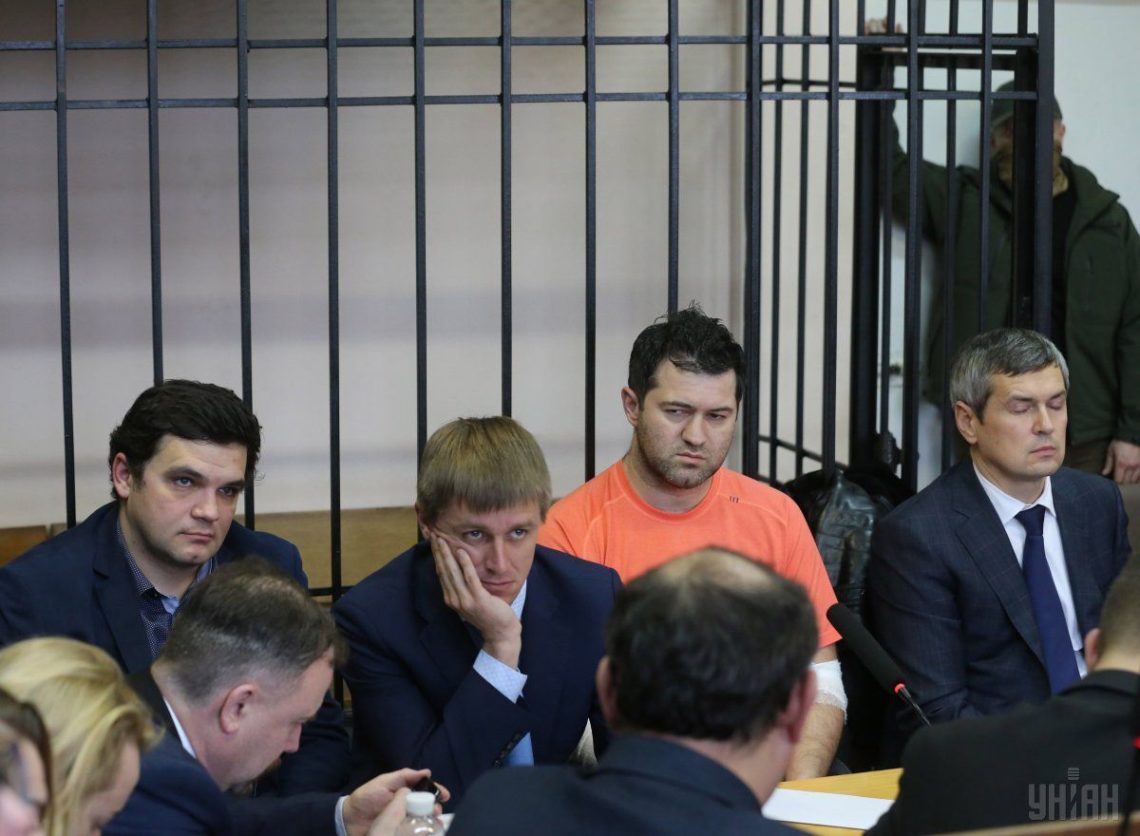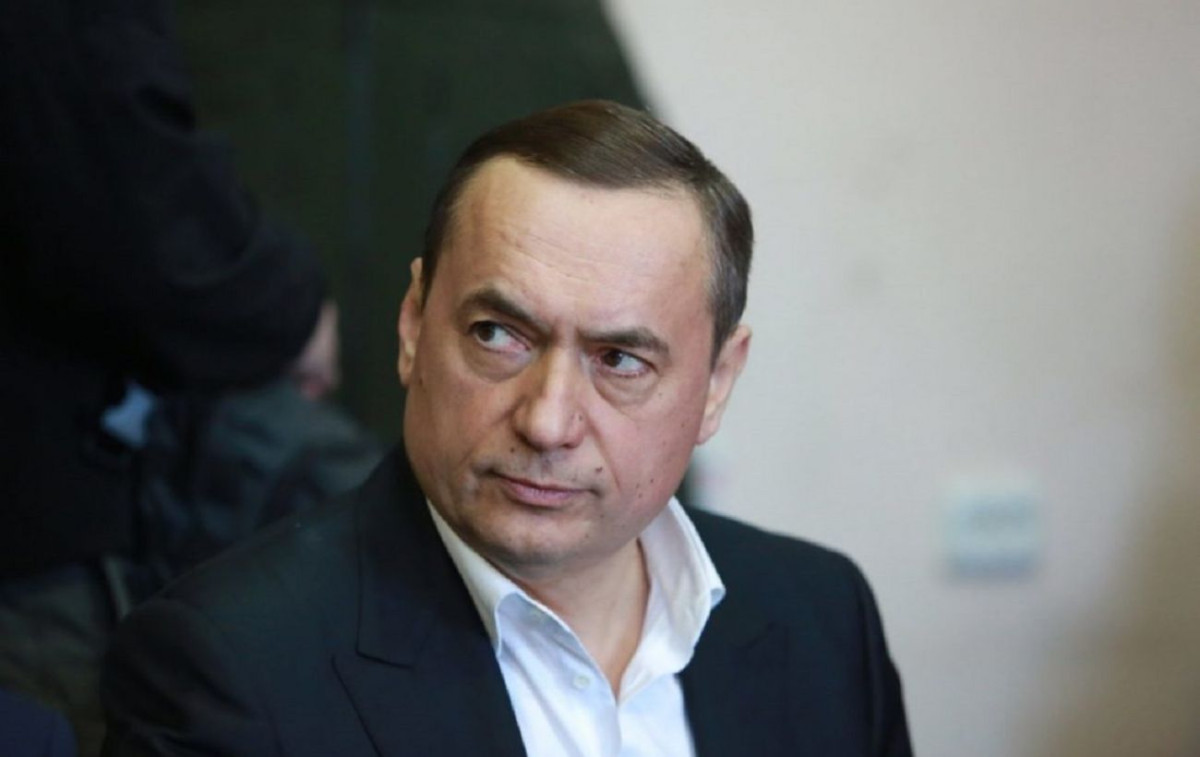

The gas case of former State Fiscal Service head Roman Nasirov, the energy case involving former MP Martynenko, the titanium case against former head of UMCC Zhurylo. What do these corruption blockbusters have in common? Unfortunately, the answer is as bleak as it is predictable: in just a year or two, these and other headline-making corruption scandals may quietly tiptoe toward dismissal, and suspects may become eligible for release from criminal liability or punishment.
In plain terms, we may never see a full-fledged trial in these top-tier corruption cases. Even in the best-case scenario, where a court issues a guilty verdict, defendants could simply file for exemption from criminal liability. Billions that were likely stolen? Consider them gone for good. Justice? Still stuck in traffic.
The fact is that the statute of limitations is closing in—fast. For many high-profile cases, the legal expiration date ranges from 5 to 15 years, depending on how serious the crime is. And while this ticking clock has been a topic of debate for years, the urgency is only growing louder. Because it’s not just some lofty idea of justice that’s at risk here, it’s also the years of grinding, painstaking effort and resources poured in by law enforcement and judges, all in the hope of actually getting justice done.
So, we’ve pulled together a list of the loudest, boldest top-corruption cases that may soon be quietly swept off the docket—thanks to the calendar, not the court.
It’s not just some lofty idea of justice that’s at risk here, it’s also the years of grinding, painstaking effort and resources poured in by law enforcement and judges, all in the hope of actually getting justice done.
Andrii Tkachuk
On the brink of closure
A number of headline-making cases worth billions of hryvnias are already teetering on the edge of closure. And what’s helping push them over that edge? The defendants themselves, who, it turns out, are masters of procedural gymnastics. From burying the court in endless motions, to defense attorneys suddenly refusing to show up, to an outbreak of conveniently timed “illnesses,” no-shows, and even attempts to get drafted into the army—anything goes if it helps run out the clock.
Fragments of the “Onyshchenko gas case”
Former head of the State Fiscal Service Roman Nasirov is perhaps the most vivid example of a corruption case on the verge of “expiring.” He’s a central figure in the now-infamous “gas case” tied to disgraced MP-on-the-run Oleksandr Onyshchenko.
The whole country recently watched Nasirov’s sudden urge to join the army. However, the patriotic impulse didn’t quite hold up under scrutiny. As it turned out, the mobilization attempt was just like a legal maneuver, since the law requires criminal proceedings against a mobilized defendant to be put on hold. How convenient, especially at the final stage of the trial. But the real problem here, just like in other top-tier cases, the statute of limitations is breathing down the neck of the judiciary.
Nasirov and his alleged accomplice, Novikov, are accused of abuse of power (Article 364 of the Criminal Code of Ukraine)—a charge that carries a 10-year statute of limitations. Since the alleged wrongdoing dates back to 2016, the case has just one year left, until 2026.
A similar fate awaits the case against Nasirov’s alleged enabler, Liudmyla Solotva, a former head of a department at the SFS. Investigators believe that in 2015–2016, she helped him rubber-stamp dubious decisions to defer tax debts for companies under Onyshchenko’s control.
Truth, it seems, is also on borrowed time in the case of Kharkiv economic court judge Tetiana Denysiuk. Though the first-instance court has twice acquitted her, NABU and SAPO are not giving up, insisting she was part of Onyshchenko’s schemes. Back in 2016, she allegedly ruled to unjustifiably reduce penalties and court fees worth UAH 205,000 for the fugitive MP’s companies. That trial has now been dragging on for six years. Denysiuk’s case was among the first to land at the High Anti-Corruption Court, and now it’s stuck in the Appeals Chamber. No matter how the court rules, 2026 will mark the end of the road because of the statute of limitations.
Nasirov and his alleged accomplice, Novikov, are accused of abuse of power—a charge that carries a 10-year statute of limitations. Since the alleged wrongdoing dates back to 2016, the case has just one year left, until 2026.
Andrii Tkachuk
The UMCC titanium case
Ruslan Zhuryo, former head of the United Mining and Chemical Company (UMCC), has also played his part in slowing down justice. He’s accused of orchestrating the sale of titanium concentrate at prices discounted by $13 million. In March 2023, Zhurylo was mobilized, which automatically paused court proceedings against him. Meanwhile, his alleged accomplice, Yurii Pertsev, has been diligently attending hearings from abroad.
Still, all of this courtroom activity might end up being just for show. Because 2026 will also be the final year for the UMCC case. That’s when the 10-year statute of limitations runs out on the alleged crimes. So, what’s it going to be? A verdict—or yet another case quietly shelved due to timing? Will the court manage to finish the trial, and will the appeals chamber pick up the pace just enough to squeeze into the shrinking legal window? One way or another, we won’t have to wait long for an answer.
Still, all of this courtroom activity might end up being just for show. Because 2026 will also be the final year for the UMCC case. That’s when the 10-year statute of limitations runs out on the alleged crimes.
Andrii Tkachuk
The first episode of the Martynenko case
Former MP Mykola Martynenko is something of a recurring character in the corruption saga, popping up in more than one scandal over the years. His alleged misdeeds date back to the early 2000s, and the oldest case on the books concerns events from 2008 to 2012. According to investigators, Martynenko masterminded a scheme to misappropriate €6.3 million from the state enterprise Energoatom.
The case has now entered its second year of witness questioning, so we’re still a long way from any final judgment. And it’s not as if things have moved quickly so far. Martynenko’s defense has relied heavily on a classic playbook of delay tactics: skipping hearings without valid reasons, disrupting proceedings, filing frivolous recusals, accusing judges of crimes, and even threatening to sue them for “defamation of honor and dignity.”
To add a darker twist, in 2020, unknown individuals set off an explosion in the very spot where presiding judge Lesia Fedorak usually parks her car. The HACC took this not-so-subtle message seriously, calling it an attempt to pressure the court and reporting the interference to the High Council of Justice. In turn, the HCJ asked law enforcement to investigate and requested from the Court Security Service enhanced security measures for judges and the HACC premises.
For the record, the statute of limitations for the crimes Martynenko is charged with is 15 years. That gives this case until 2027 to wrap up—either with a verdict or simply running out the clock.
For the record, the statute of limitations for the crimes Martynenko is charged with is 15 years. That gives this case until 2027 to wrap up—either with a verdict or simply running out the clock.
Andrii Tkachuk
The first “Rotterdam+” episode
Unless you’ve been living under a rock, you’ve likely heard of the “Rotterdam+” case. It made waves after being closed five times, thanks in no small part to the infamous “Lozovyi amendments.”
According to NABU and SAPO, the NEURC leadership included the cost of transporting coal from Rotterdam in the price of coal used by Ukrainian thermal power plants, even when the coal came from Ukrainian mines or from occupied territories. The result? Consumers, investigators say, overpaid private companies more than UAH 39 billion.
The first episode of this saga covers 2016–2017, a period during which, according to detective estimates, consumers were fleeced out of over UAH 18 billion. But the clock is ticking: unless a verdict is delivered by 2027, this grand scheme with its cast of characters might quietly exit the stage due to the 10-year statute of limitations for abuse of office.
As if that weren’t enough, the HACC has already been forced to release two former NEURC members from liability for official negligence, which, back in 2016–2017, allegedly led to unjustified electricity overpayments of nearly UAH 19 billion.
The clock is ticking: unless a verdict is delivered by 2027, this grand scheme with its cast of characters might quietly exit the stage due to the 10-year statute of limitations for abuse of office.
Andrii Tkachuk
The price of impunity
When high-profile corruption cases collapse because of expired statutes of limitations, it’s more than just another procedural formality—it’s a gut punch to the victims and to society at large. That’s why Transparency International Ukraine has repeatedly stressed the urgent need to rethink how limitation periods are calculated in corruption cases.
Some issues could be addressed through draft law No. 13284, which was recently registered in parliament. But the current system doesn’t account for the very deliberate strategies defendants and their lawyers use to drag out proceedings, or for the complexity of investigating financial corruption, which often crosses borders and involves multiple jurisdictions.
One fix? The statute of limitations should end when the first-instance court issues a verdict, not when that verdict finally becomes legally binding after appeal. Cross-border crimes are more dangerous, more complex, and take longer to investigate, especially when international cooperation is involved. So it makes perfect sense to pause the limitation clock during those periods of necessary coordination with foreign partners.
The examples of Nasirov, Zhurylo, Martynenko, “Rotterdam+,” and others put this issue in sharp focus. Years of complex investigations and court proceedings are constantly undermined by procedural stalling, pushing the finish line farther and farther away. If, for instance, the limitation period were paused after the first verdict, the chances of holding defendants accountable would rise significantly.
But unless we change the approach, we’ll keep watching billion-hryvnia corruption cases fall apart on technicalities. And for a country aiming to root out corruption once and for all, that’s a price far too high.
But unless we change the approach, we’ll keep watching billion-hryvnia corruption cases fall apart on technicalities. And for a country aiming to root out corruption once and for all, that’s a price far too high.
Andrii Tkachuk









